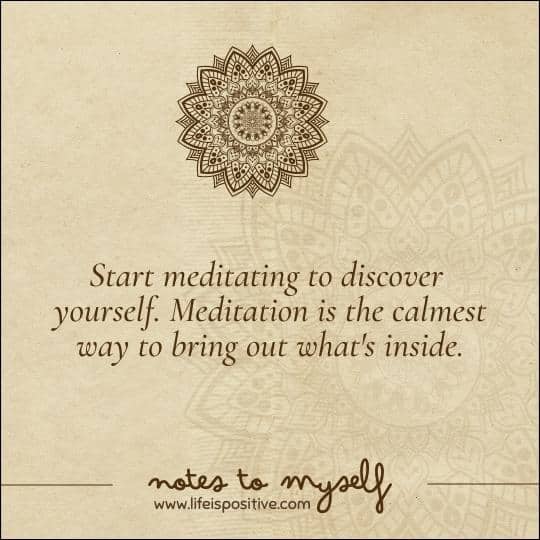|
Getting your Trinity Audio player ready...
|
Spirituality should feel freeing, grounding, and healing—but sometimes, it can take a turn into avoidance or perfectionism. Emotionally unhealthy spirituality happens when spiritual practices are used to bypass real emotions, suppress struggles, or ignore deeper wounds. It may look peaceful on the outside, but inside, there’s disconnection.
Recognizing emotionally unhealthy spirituality is key to staying true to your path. It’s not about doing it “right”—it’s about being honest, present, and human. True spiritual growth includes your joy and your mess. You don’t need to float above your feelings—you need to feel them to heal them.
What is Emotionally Unhealthy Spirituality?
Spirituality is meant to be a source of peace, purpose, and transformation. But when it’s used to avoid uncomfortable emotions or bypass inner work, it can quietly shift into emotionally unhealthy spirituality.
This happens when spiritual language and practices are used to cover pain instead of facing it. Think: always “staying positive” to avoid grief, using meditation to numb instead of feel, or shaming yourself for having human emotions.
Emotionally unhealthy spirituality often looks polished on the outside, but inside, there’s emotional disconnection and suppressed truth. It’s a form of spiritual bypassing—where we cling to light while ignoring the dark. But real growth comes from integration, not avoidance.
It’s okay to cry. It’s okay to feel angry, lost, or confused on your spiritual path. That doesn’t mean you’re failing—it means you’re healing.
True spirituality honors the whole you: messy, raw, radiant, and real. You don’t need to be perfect to be spiritual. You just need to be honest. That’s where the magic—and the healing—begins.
Read: How Spiritually Aligned Environments Can Supercharge You
How Ignoring Emotions Hinders Spiritual Growth
Ignoring your emotions might seem like the “spiritual” thing to do—after all, isn’t detachment the goal? But here’s the catch: ignoring your emotions actually hinders spiritual growth, and here’s why.
When we brush off our feelings, we’re basically putting a giant boulder in the middle of our spiritual path. Emotions are part of the human experience, and pretending they don’t exist doesn’t help anyone.
Think about it: spiritual growth is about becoming more whole, more connected, and more in tune with who you really are. But if you’re ignoring your emotions, you’re only dealing with half the equation.
Emotions are like the roadmap to understanding yourself; without them, you’re just wandering around, hoping to stumble upon enlightenment.
When you push emotions aside, you also push away parts of yourself that need attention. Whether it’s anger, sadness, or fear, ignoring them keeps you stuck in a spiritual rut.
True spiritual growth comes when you acknowledge and process those feelings, not shove them under the rug. So, stop pretending your emotions don’t exist. Embrace them, and watch your spiritual growth soar!
Read: Hidden Connection Between Nature and Spirituality
Signs You Have Emotionally Unhealthy Spirituality
So, how do you know if you’re dealing with the problem of emotionally unhealthy spirituality? Here are a few signs to watch out for:
1. You’re Quick to Judge: If you find yourself constantly judging others or yourself, it could be a sign that you’re not in touch with your own emotions.
2. You Avoid Conflict at All Costs: While it’s great to be peaceful, avoiding conflict altogether can indicate that you’re afraid to confront your own emotions.
3. You Feel Disconnected During Spiritual Practices: If your spiritual practices feel more like a chore than a joy, it might be because unresolved emotions are blocking your connection.
4. You Struggle with Forgiveness: Whether it’s forgiving others or yourself, holding onto grudges is a major red flag for emotionally unhealthy spirituality.
5. You’re Overly Focused on “Doing” Rather Than “Being”: If you’re constantly busy with spiritual activities but don’t feel any internal peace, it’s time to check in with your emotions.
Read: Why Letting Go Can Be Your Best Superpower

Emotional and Spiritual Health
Alright, so we’ve talked about emotionally unhealthy spirituality, but how do we fix it? The answer lies in integrating your emotional and spiritual lives. Here’s how to start:
1. Acknowledge Your Emotions: The first step is to admit that your emotions matter. Whether it’s joy, sadness, anger, or fear, these feelings are important signals that can guide your spiritual growth.
2. Practice Emotional Honesty: Be honest with yourself about how you’re feeling. If something’s bothering you, don’t shove it down—face it head-on. Journal about it, talk to a trusted friend or pray for clarity.
3. Seek Balance: It’s not about being overly emotional or overly spiritual—it’s about finding a balance. Make time for both emotional self-care and spiritual practices.
4. Get Help if You Need It: If you’re struggling to connect emotionally or spiritually, don’t be afraid to seek help. Whether it’s therapy, counseling, or spiritual guidance, getting support can make a huge difference.
5. Embrace the Journey: Finally, remember that emotional and spiritual growth is a journey, not a destination. Be patient with yourself as you work to bridge the gap between your emotions and your spirituality.
Read: Is Your Subconscious Mind Controlling You
Final Thoughts: Emotionally Unhealthy Spirituality
The problem of emotionally unhealthy spirituality isn’t something you can just ignore or brush under the rug. Sure, it might be easier to focus on prayer, meditation, or spiritual rituals and hope your emotions just magically work themselves out.
But here’s the deal: without addressing your emotional health, your spiritual growth will always feel a little… off.
When you neglect your emotional well-being, you’re only getting half of the picture. The problem of emotionally unhealthy spirituality keeps you stuck, disconnected, and feeling unfulfilled, no matter how many candles you light or mantras you chant.
To truly grow spiritually, you need to acknowledge, feel, and work through your emotions.
So, what’s the solution? Balance. Embrace both your emotional and spiritual sides, and watch how much more aligned you’ll feel. It’s not about choosing one over the other—it’s about integrating both into your journey.
The problem of emotionally unhealthy spirituality can be solved when you give equal love and attention to both your heart and soul.
For more empowering content, connect with our vibrant community here ➡️ Social Media


